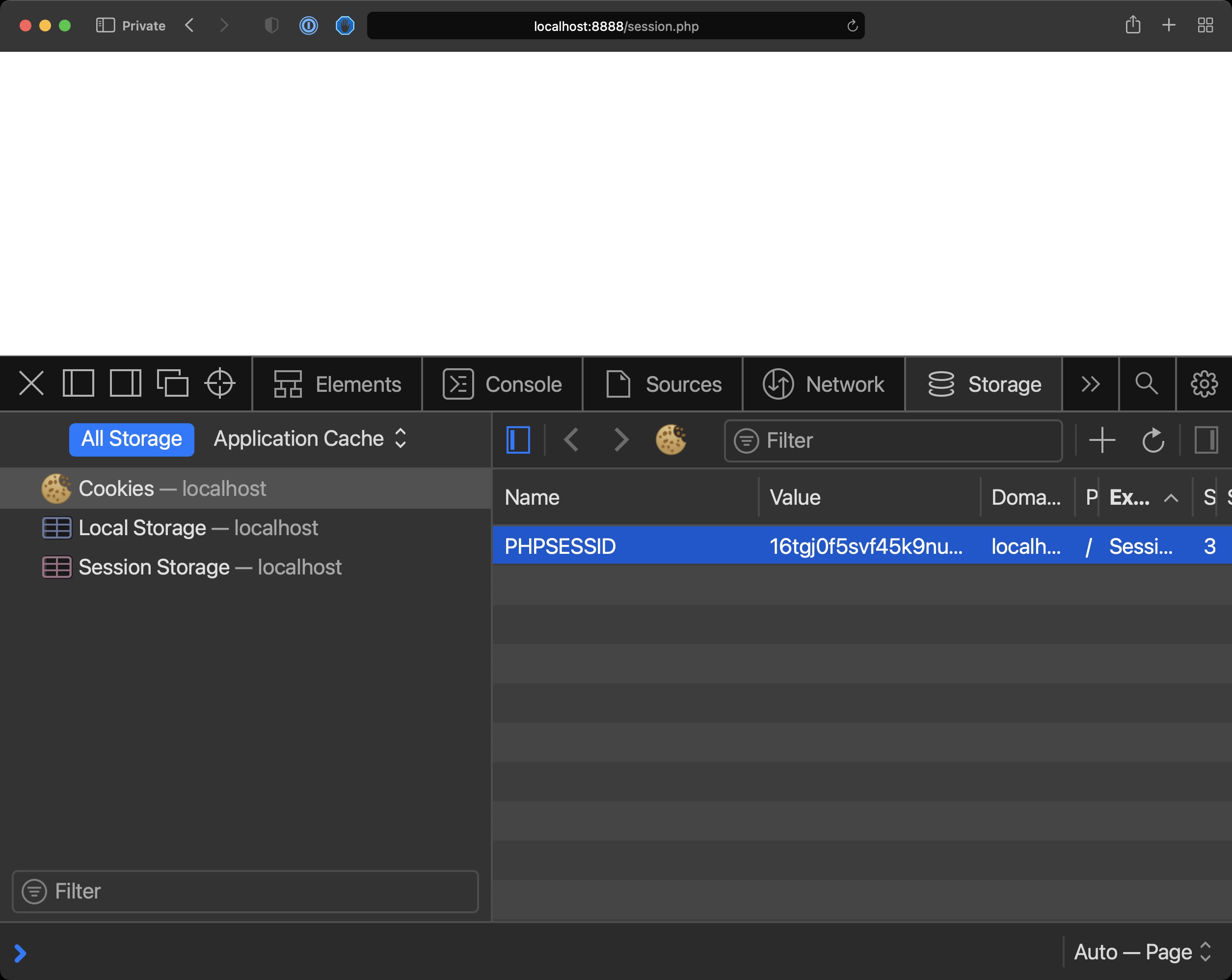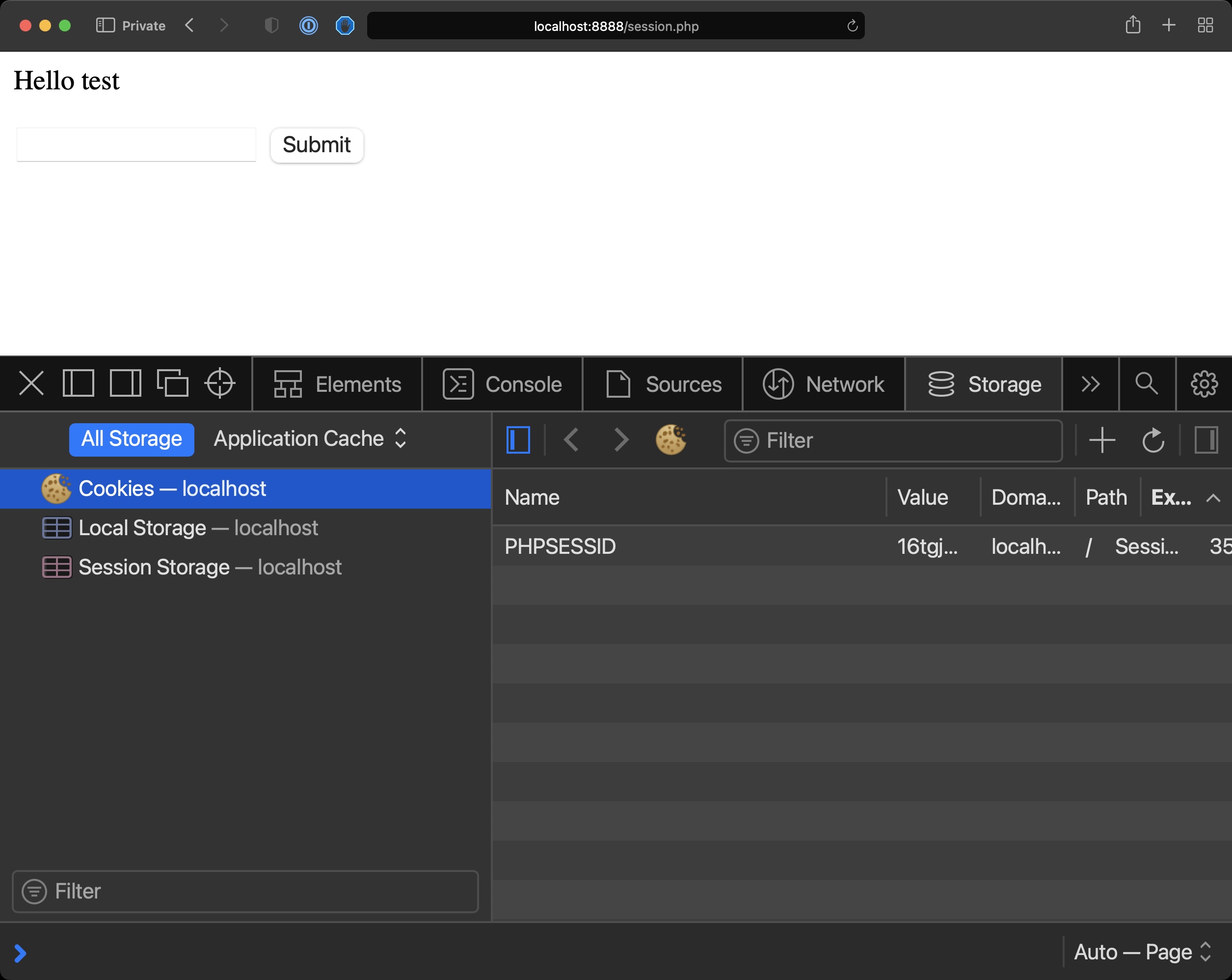How to use PHP Cookie-based Sessions
One very interesting use case for cookies is cookie-based sessions.
PHP offers us a very easy way to create a cookie-based session using session_start().
Try adding
<?php
session_start();
?>
in a PHP file, and load it in the browser.
You will see a new cookie named by default PHPSESSID with a value assigned.
That’s the session ID. This will be sent for every new request and PHP will use that to identify the session.

Similarly to how we used cookies we can now use $_SESSION to store the information sent by the user, but this time it’s not stored client-side.
Only the session ID is.
The data is stored server-side by PHP.
<?php
session_start();
if (isset($_POST['name'])) {
$_SESSION['name'] = $_POST['name'];
}
if (isset($_POST['name'])) {
echo '<p>Hello ' . $_POST['name'];
} else {
if (isset($_SESSION['name'])) {
echo '<p>Hello ' . $_SESSION['name'];
}
}
?>
<form method="POST">
<input type="text" name="name" />
<input type="submit" />
</form>

This works for simple use cases, of course for intensive data you will need a database.
To clear the session data you can call session_unset().
To clear the session cookie use:
setcookie(session_name(), '');
→ I wrote 17 books to help you become a better developer:
- C Handbook
- Command Line Handbook
- CSS Handbook
- Express Handbook
- Git Cheat Sheet
- Go Handbook
- HTML Handbook
- JS Handbook
- Laravel Handbook
- Next.js Handbook
- Node.js Handbook
- PHP Handbook
- Python Handbook
- React Handbook
- SQL Handbook
- Svelte Handbook
- Swift Handbook
Also, JOIN MY CODING BOOTCAMP, an amazing cohort course that will be a huge step up in your coding career - covering React, Next.js - next edition February 2025